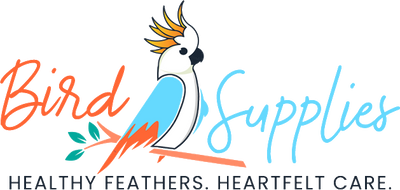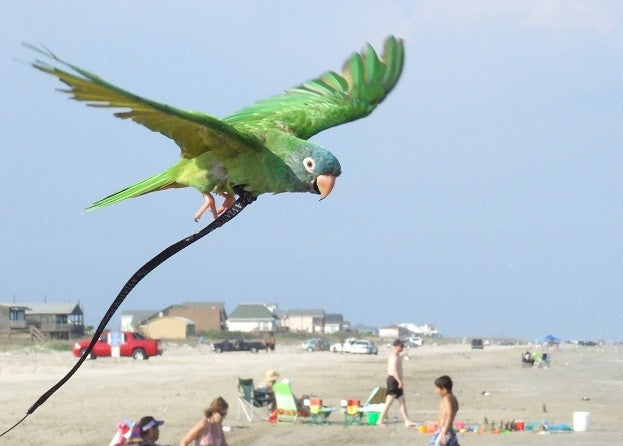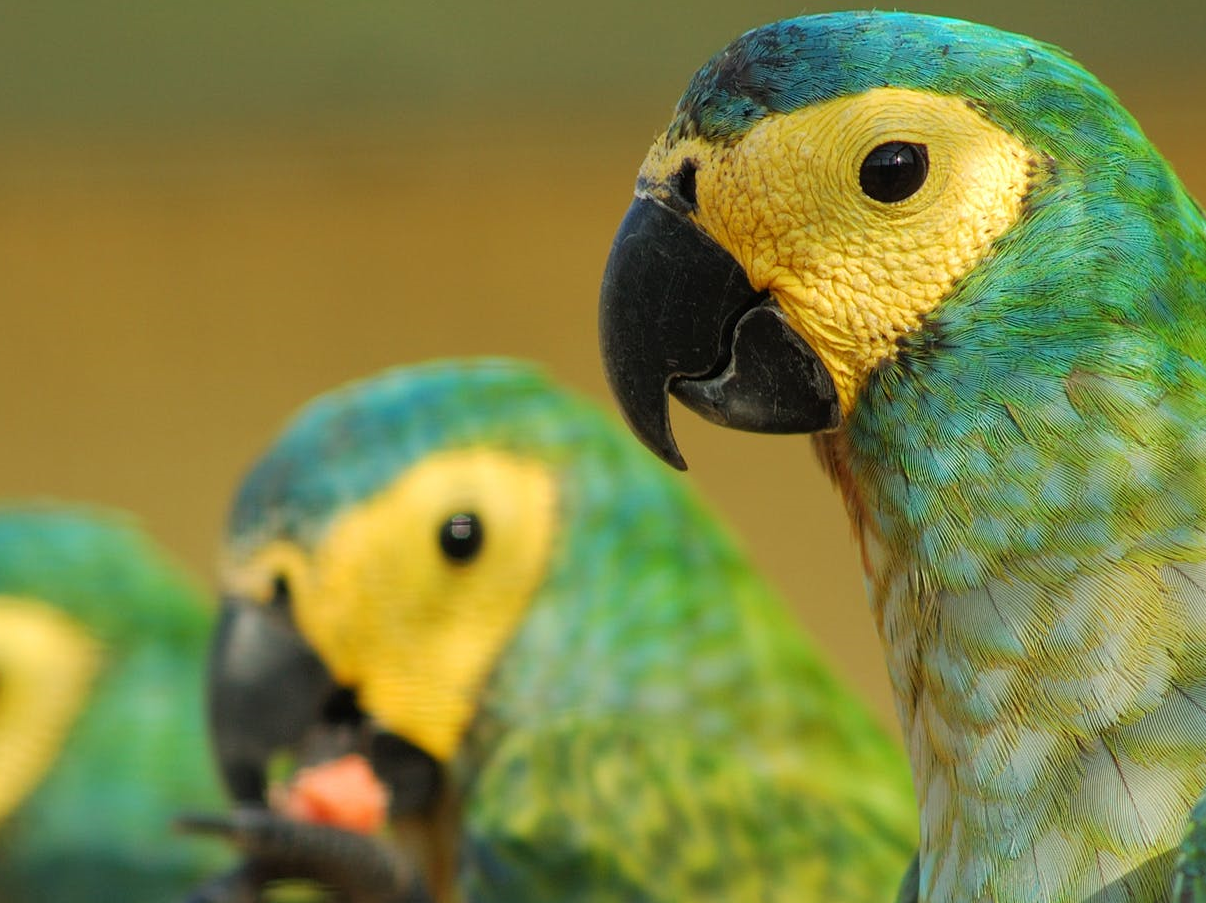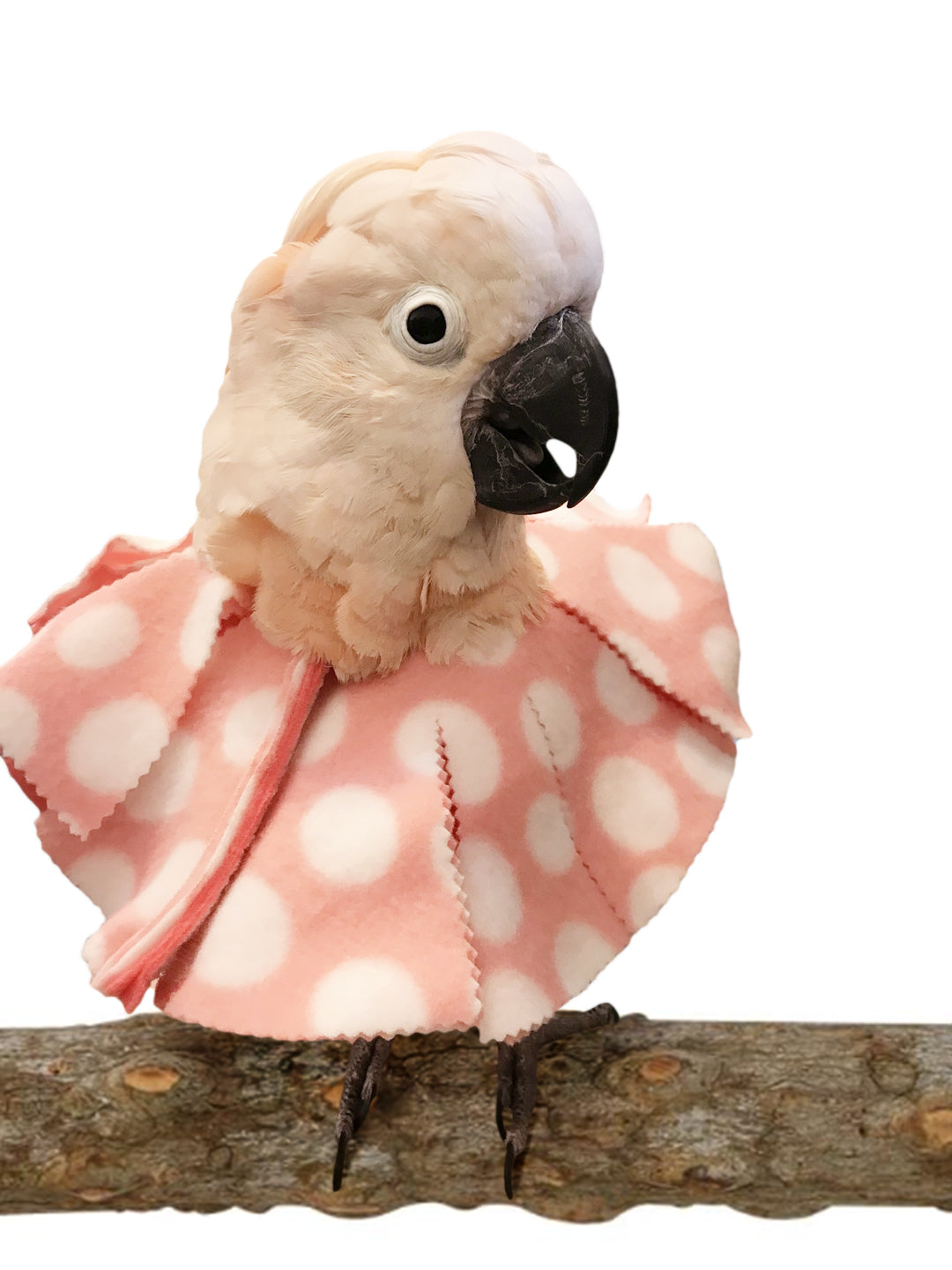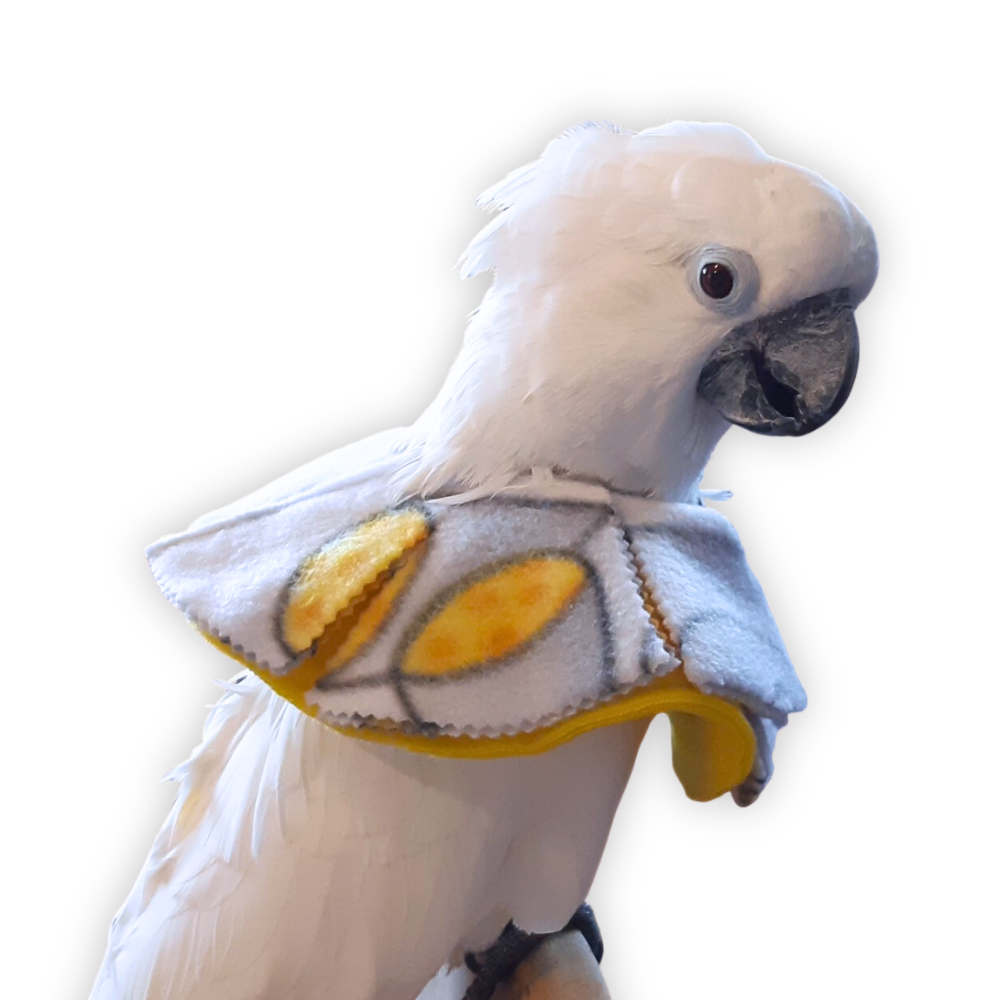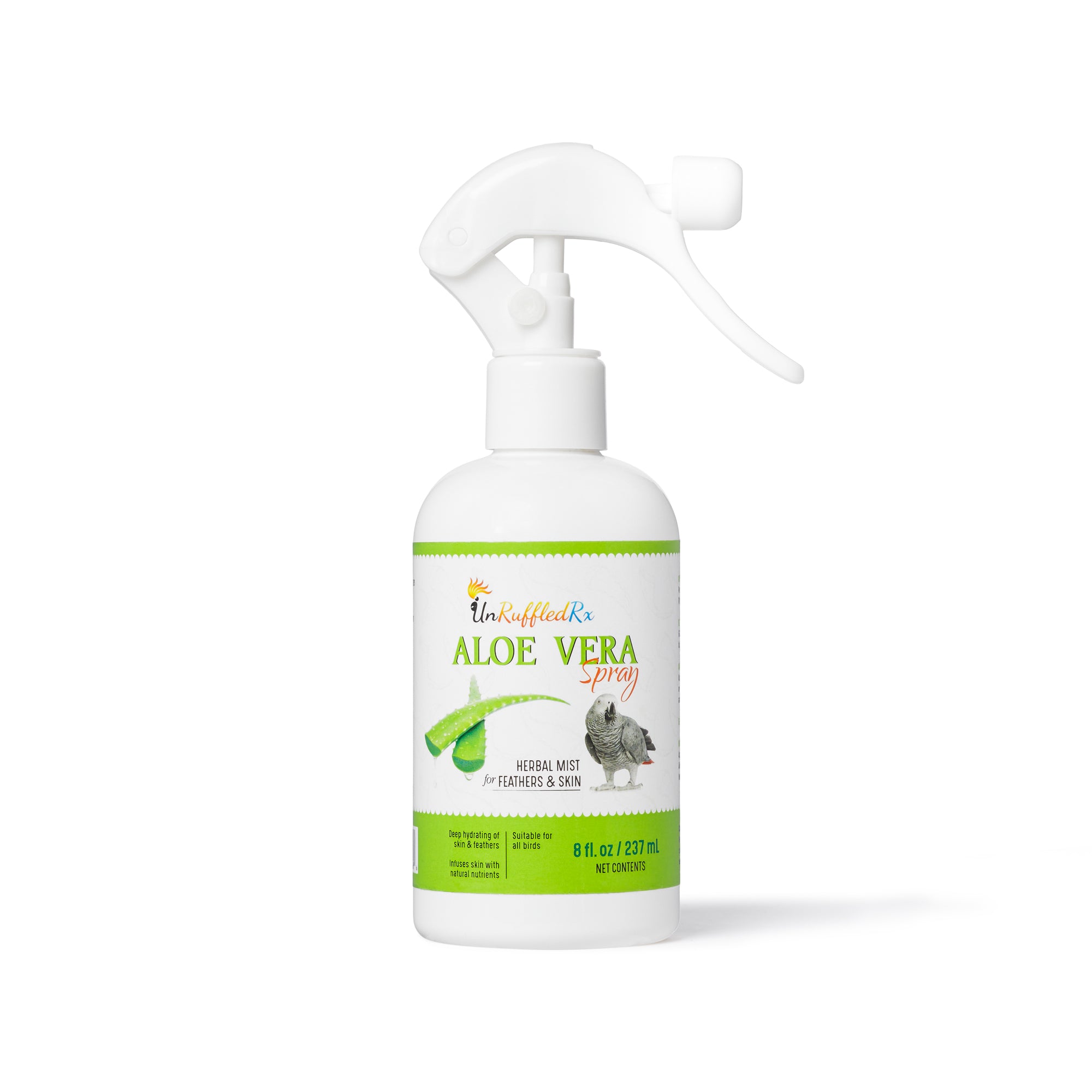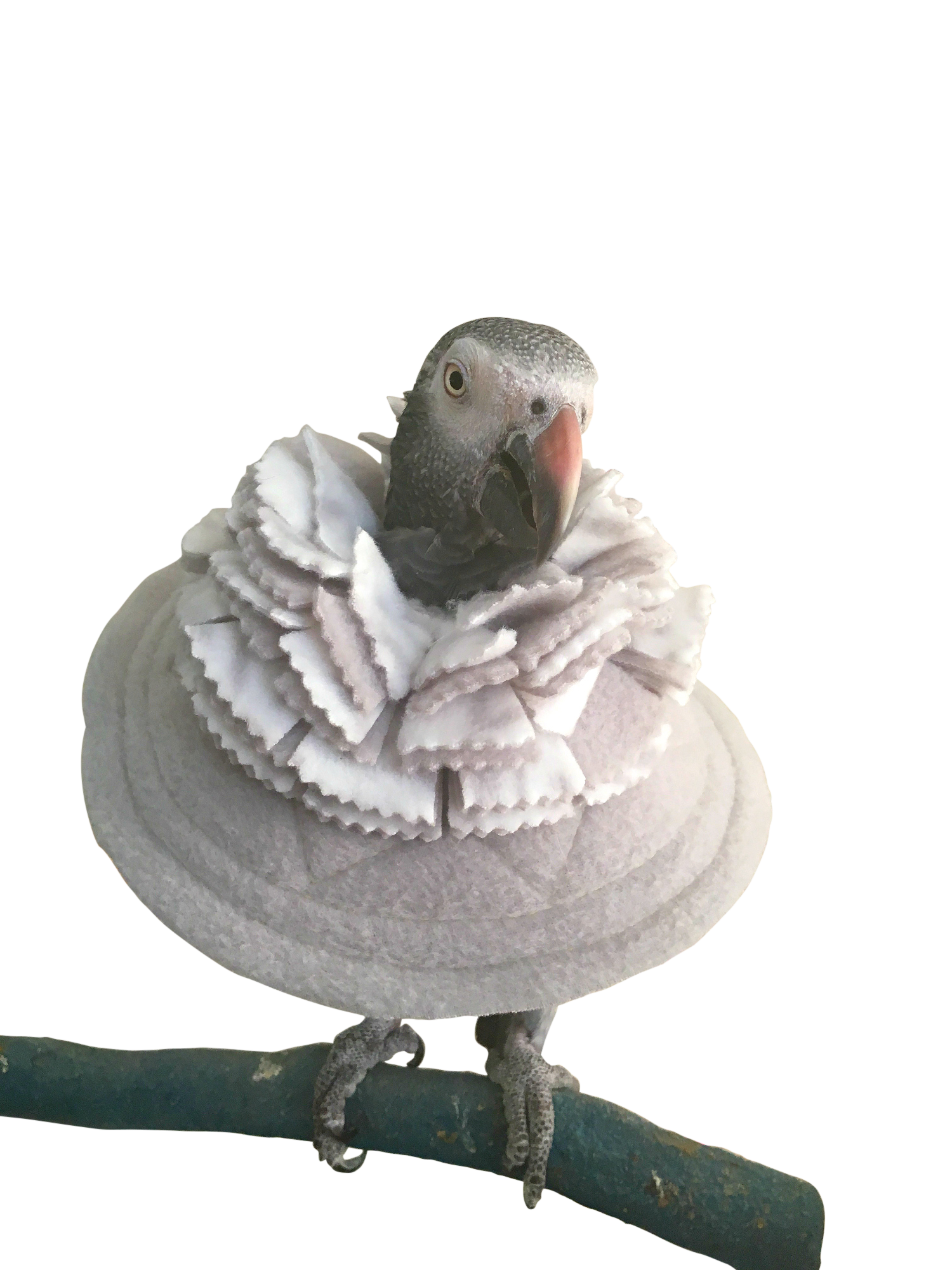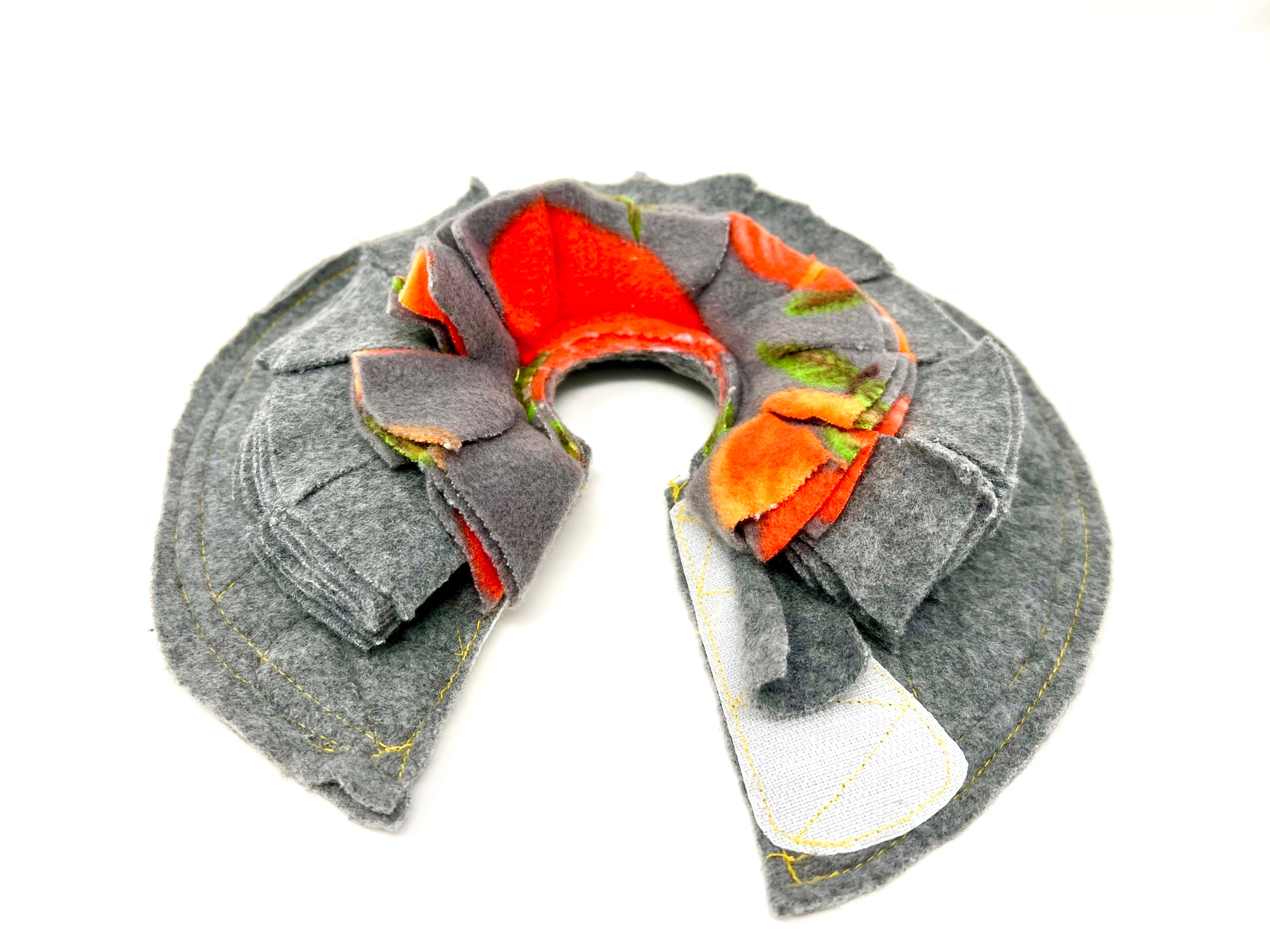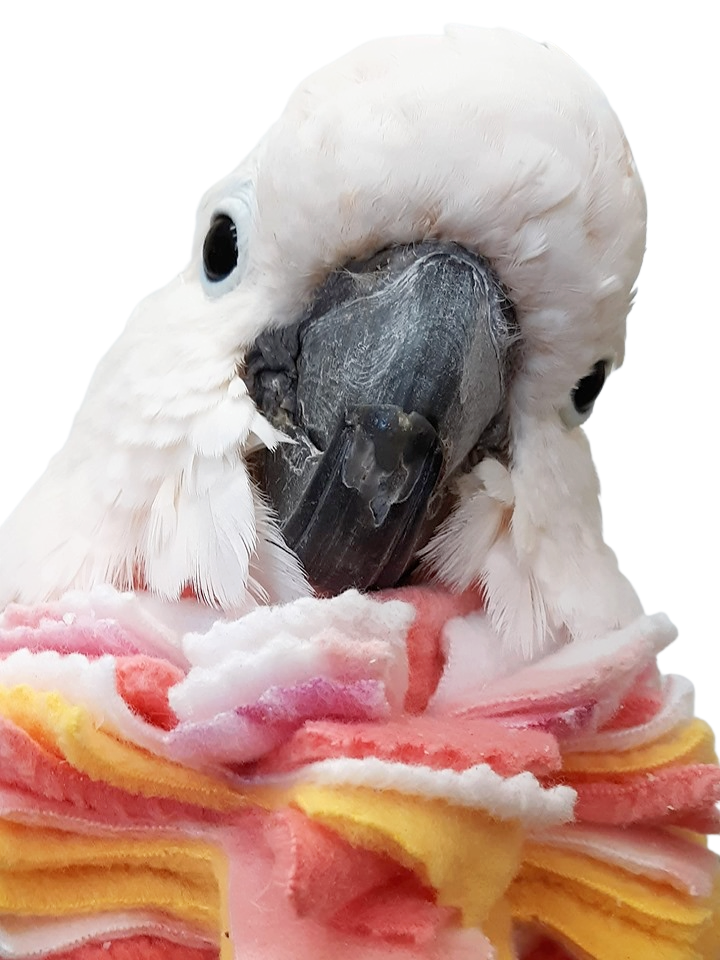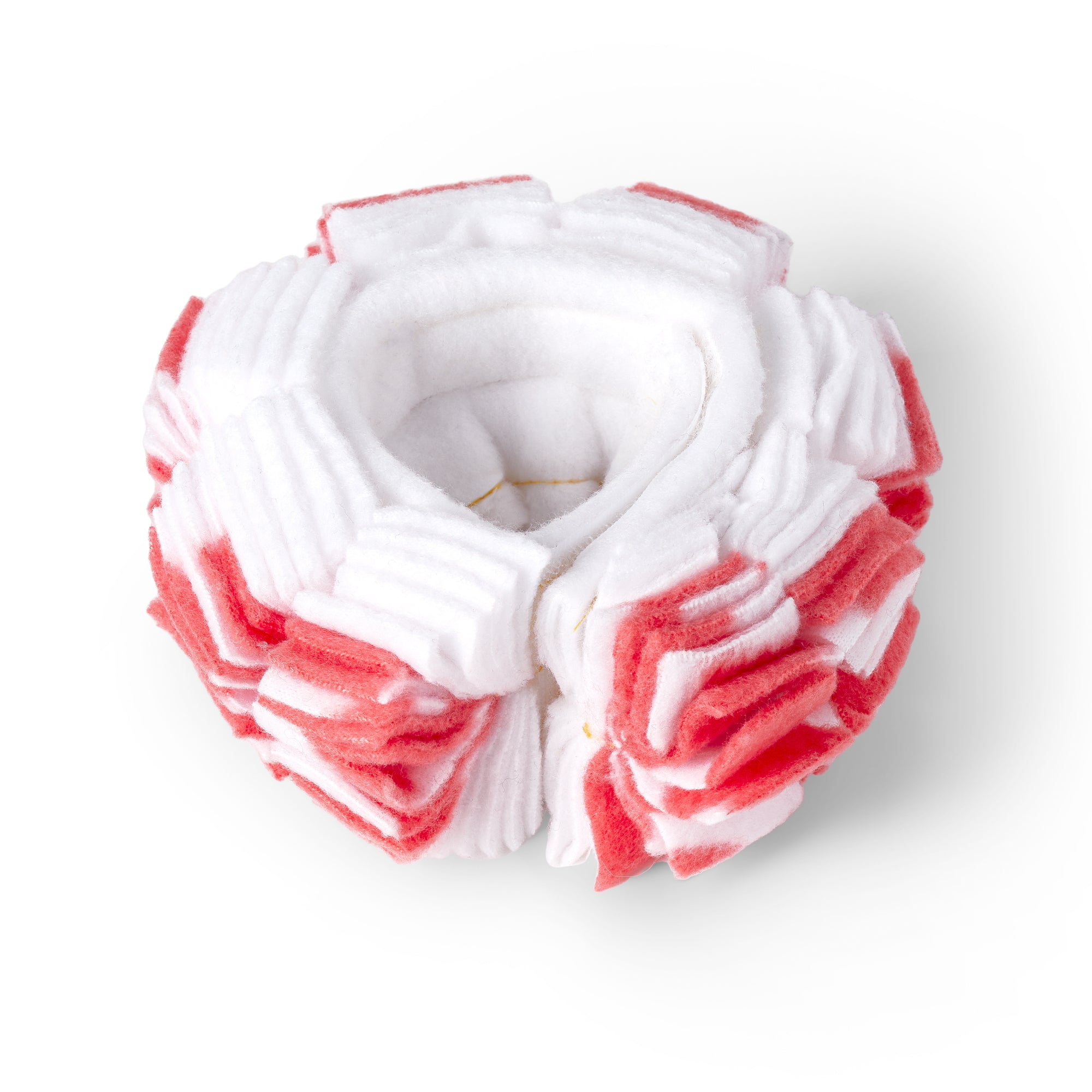By Diane Burroughs
Revised 05/01/2024
Table of Contents
Welcome to our guide on Parrot Weight Management: Tracking with a Bird Scale. We'll dive into why weighing your parrot is crucial, how to do it, and signs of a healthy weight versus overweight. Let's ensure your feathered friend stays fit and fabulous!
Why should I weigh my parrot?
How do I weigh my bird?
For weighing your parrot accurately, using a bird scale that measures in grams is essential. Birds being lightweight creatures so measuring in grams ensures precision. A standard kitchen or postal scale, available for about $30 on Amazon, is suitable. For utmost accuracy, opt for a digital scale.
Researching your bird's species will help you determine their ideal weight range. For example, a Green Cheek Conure typically weighs between 60 to 75 grams, while a Sun Conure ranges from 95 to 120 grams. Even a 10% change in weight for an adult bird can signal underlying issues. That means, that just a 7 gram weigh gain or weight loss can be a big deal for a Green Cheek Conure!
Here's a step-by-step guide on how to weigh a parrot:
-
Choose a Specific Day and Time: Pick a consistent day of the week and time, such as every Sunday morning, to weigh your parrot. This regular schedule helps track changes accurately.
-
Prepare the Bird Scale: Use a bird scale that measures in grams. Place your bird on the scale top or place a triangle perch on the scale and ensure it is stable. Tare the scale to zero with the perch on it so that only the bird's weight is measured.
-
Gently Place Your Parrot on the Perch: Carefully place your parrot on the perch. Ensure they are comfortable and not stressed during this process.
-
Record the Weight: Once your parrot is settled on the perch and the scale stabilizes, note down the weight displayed on the scale.
-
Document the Measurement: Record the date, time, and weight in a notebook or a digital spreadsheet. This documentation helps track your parrot's weight over time and detect any changes.
-
Reward and Comfort Your Parrot: After weighing, offer your parrot a treat or some comforting words to ensure they have a positive experience.
By following these steps regularly, you can effectively monitor your parrot's weight and ensure their overall health and well-being.
How to tell if your bird is a healthy weight
It is hard to tell if your bird is the right weight just by looking at it. Instead, you'll need to feel its breast bone. The breast bone on your bird should feel prominent but not sharp. If you're unable to feel its presence, your bird may be overweight or underweight.
Teach your bird to allow you to handle it and lay it on its back in your palm or on you forearm. It might take two people to handle a nervous large bird like this. Towel your bird so that it can't flap its wings and try to get away.
Once your bird is on it's back with its breast bone up, gently use your finger tips to feel the middle of its breast bone.
A healthy bird will have a noticeable breast bone that is not sharp but prominent. If you can't feel any bones, then your parrot may be overweight. If the breast bone feels sharp to the touch the bird is considered to be underweight.
A healthy bird needs fit breast muscles to fly. So it is important that your parrot has enough muscle but not too much fat on its body, especially around its breast area. It should be able to move freely in flight without feeling tight or constricted. The way to achieve that is by eating a proper diet and exercising regularly. Eating an excessive amount of fatty food is probably one of the biggest causes of obesity in pet birds, along with lack of exercise.
How do I know if my bird is overweight?
In addition to weekly weight monitoring and the keel method, you can look for behavioral symptoms. Each of these symptoms is concerning so always schedule an immediate vet visit if you see these symptoms:| Symptom | Overweight | Underweight |
|---|---|---|
| Reduced Activity | ✓ | ✓ |
| Fatigue/Lethargy | ✓ | ✓ |
| Changes in Plumage | ✓ | ✓ |
| Breathing Difficulties | ✓ | |
| Increased Vocalizations | ✓ |
How can I help my bird safely lose weight?
Consult with your avian vet to get a clean bill of health
When it comes to addressing parrot weight loss, consulting with an avian or exotics vet is paramount. These professionals possess specialized knowledge in avian health and can conduct thorough assessments to pinpoint the underlying causes of weight loss in parrots. They offer tailored advice on diet modifications, exercise routines, and monitoring techniques to facilitate safe and effective weight management. Regular check-ups with an avian vet ensure that any progress or setbacks in your parrot's weight loss journey are monitored closely, leading to improved health and well-being.
Switch your bird to a 60% bird pellet / 40% raw, bird-safe plant based diet
When it comes to addressing parrot weight loss, consulting with an avian or exotics vet is paramount. These professionals possess specialized knowledge in avian health and can conduct thorough assessments to pinpoint the underlying causes of weight loss in parrots. They offer tailored advice on diet modifications, exercise routines, and monitoring techniques to facilitate safe and effective weight management. Regular check-ups with an avian vet ensure that any progress or setbacks in your parrot's weight loss journey are monitored closely, leading to improved health and well-being.

Implement controlled feeding
Controlled feeding for a bird trying to lose weight involves carefully regulating the amount and type of food they consume. This typically includes measuring out precise portions of nutritious foods while reducing high-calorie treats or fatty foods. The goal is to create a calorie deficit, where the bird consumes fewer calories than they expend, leading to gradual and safe weight loss over time. It's important to work with a veterinarian to develop a controlled feeding plan tailored to the bird's specific needs and monitor their progress regularly.
Offer exercise opportunities throughout the day
To ease your bird into a better exercise routine, consider these four strategies:
-
Gradual Increase in Activity: Start by introducing short periods of activity, such as supervised flight sessions or playtime outside the cage. Gradually increase the duration and intensity as your bird becomes more comfortable and accustomed to exercise.
-
Interactive Toys: Provide interactive toys that encourage physical movement, such as puzzle feeders or climbing structures. These toys not only stimulate mental activity but also promote physical exercise as your bird interacts with them.
-
Enriched Environment: Create an enriched environment within the cage by adding perches of varying heights, ropes, swings, ladders, and a bird play stand. These additions encourage climbing, hopping, and stretching, promoting physical activity throughout the day.
-
Encourage Flight: If possible, create a safe and enclosed space where your bird can fly freely. Flight is one of the most natural and beneficial forms of exercise for birds, allowing them to strengthen their muscles and improve cardiovascular health.
By implementing these gradual and engaging strategies, you can help your bird transition to a healthier and more active lifestyle while respecting their individual capabilities and needs.
What to look for in a bird scale
For general household use, ordinary kitchen scales that have a gram setting can serve adequately. If you weigh a lot of birds of varying weights throughout the day, you may wish to invest in a bird specific scale.
I've been using kitchen scales for over 20 years to monitor the weight of my flock of four birds, a green cheek conure, two African greys, and a moluccan cockatoo.
During their annual checkups with my vet, my affordable kitchen scales consistently align with the readings from the premium bird scale. When I'm concerned about weight fluctuations, I cross-check by weighing food portions and buy a new one, as needed.
| Pros of Kitchen Scale | Cons of Kitchen Scale |
|---|---|
| Affordable $30 vs. $250+ | Limited platform size for larger birds |
| Versatile for household tasks | Potential minor accuracy concerns |
| Readily available | Not as durable as specialized bird scales |
In conclusion...
By monitoring your parrot's weight regularly, you're taking a proactive step towards their well-being. It's the number one thing you can do to ensure your parrot stays healthy and happy. Start today and make monitoring parrot weight a priority in your bird care routine.
Related Posts:
Why You Need To Track Your Birds Weight With A Digital Scale
8 Way To Tell If Your Parrot Is Sick And What To Do About It
How To Use A Bird Weight Chart To Monitor Your Birds Weight
References:
Merck Veterinary Manual. (n.d.). Nutritional Disorders of Pet Birds (Pet Owner Version). Retrieved from https://www.merckvetmanual.com/bird-owners/disorders-and-diseases-of-birds/nutritional-disorders-of-pet-birds
UK Pet Food. (2022, July 15). Bird Size-O-Meter. Retrieved from https://www.ukpetfood.org/resource/bird-size-o-meter.html
Diane Burroughs, LCSW is a licensed psychotherapist trained in ABA therapy techniques. She specializes in avian anxiety disorders and is certified in Nutrition For Mental Health. Diane has written a number of bird behavior books and she offers behavior consultations. She's developed a range of UnRuffledRx Science-backed Parrot Wellness Supplies.
Diane's products have been featured in the Journal of Avian Medicine and Surgery and at Exoticscon, a conference for exotic pet veterinarians. Her bird collars & supplements are stocked in avian vet clinics and bird stores throughout the US. With over 30 years in the field of behavior, Diane has created thousands of successful individualized behavior plans that help pets thrive.
TAGS: #ParrotWeight #BirdScale
SHARING IS CARING! PLEASE SHARE ON YOUR FAVORITE SOCIAL MEDIA NOW!
